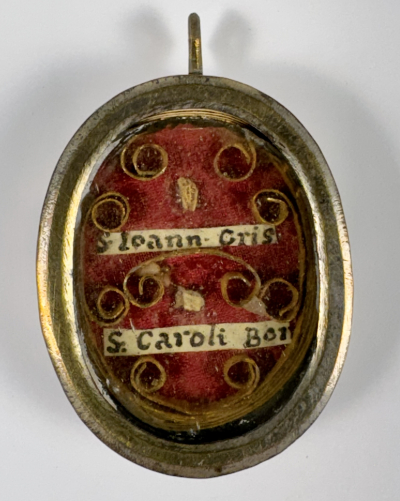Saint John Chrysostom (†407) was an important Early Church Father who served as archbishop of Constantinople. He is known for his preaching and public speaking, his denunciation of abuse of authority by both ecclesiastical and political leaders, his Divine Liturgy of Saint John Chrysostom, and his ascetic sensibilities. The epithet Chrysostomos, anglicized as Chrysostom, means "golden-mouthed" in Greek and denotes his celebrated eloquence. Chrysostom was among the most prolific authors in the early Christian Church. He is honored as a saint in the Eastern Orthodox, Oriental Orthodox, Catholic, Anglican, and Lutheran churches, as well as in some others. The Eastern Orthodox, together with the Byzantine Catholics, hold him in special regard as one of the Three Holy Hierarchs. The feast days of John Chrysostom in the Eastern Orthodox Church are 14 September, 13 November and 27 January. In the Roman Catholic Church, he is recognized as a Doctor of the Church. Because the date of his death is occupied by the feast of the Exaltation of the Holy Cross (14 September), the General Roman Calendar celebrates him on the previous day.
Saint Charles Borromeo (Italian: Caroli Borromeo, Latin: †1584) was a cardinal who was archbishop of Milan from 1564 to 1584. Among the great reformers of the troubled 16th century, Borromeo, with St. Ignatius of Loyola, St. Philip Neri, and others, led the movement to combat the inroads of the Protestant Reformation. He was a leading figure during the Counter-Reformation and was responsible for significant reforms in the Catholic Church, including the founding of seminaries for the education of priests. He is a holy patron of apple orchards; bishops; catechists; catechumens; cardinals; seminarians; spiritual directors; spiritual leaders; Lombardy, Italy; and Monterey California; and sought to assist in intestinal disorders; against ulcers; colic; and stomach diseases.








 Поменять язык на русский
Поменять язык на русский 